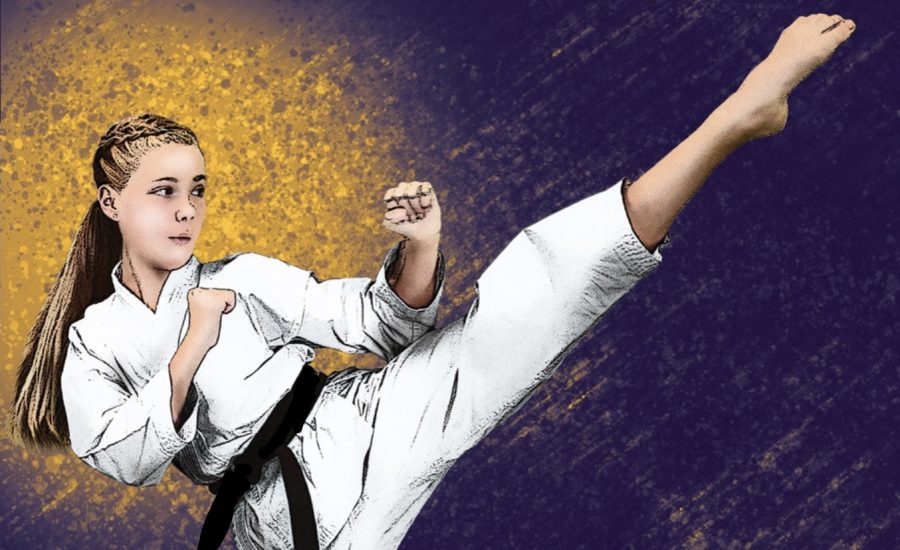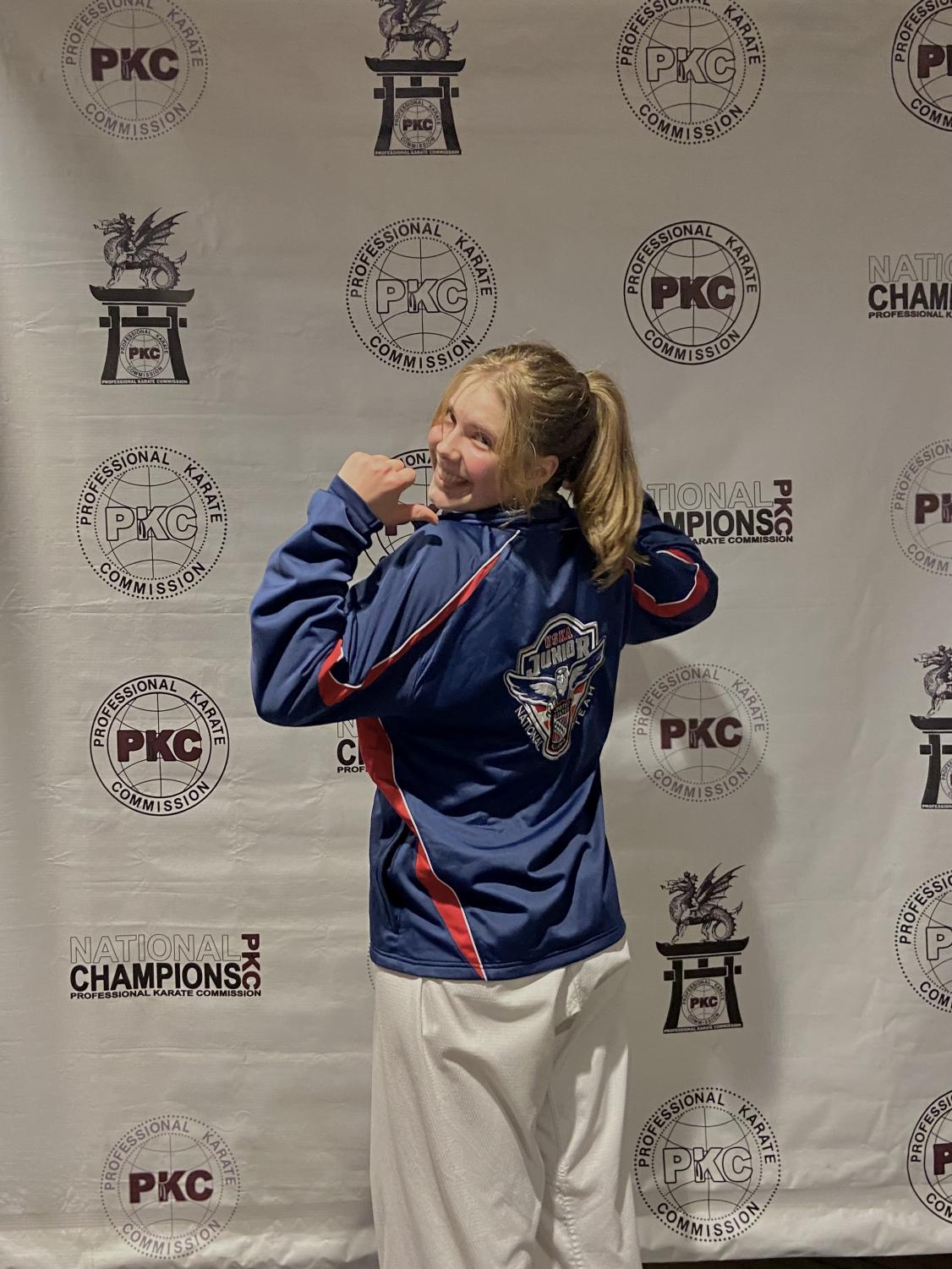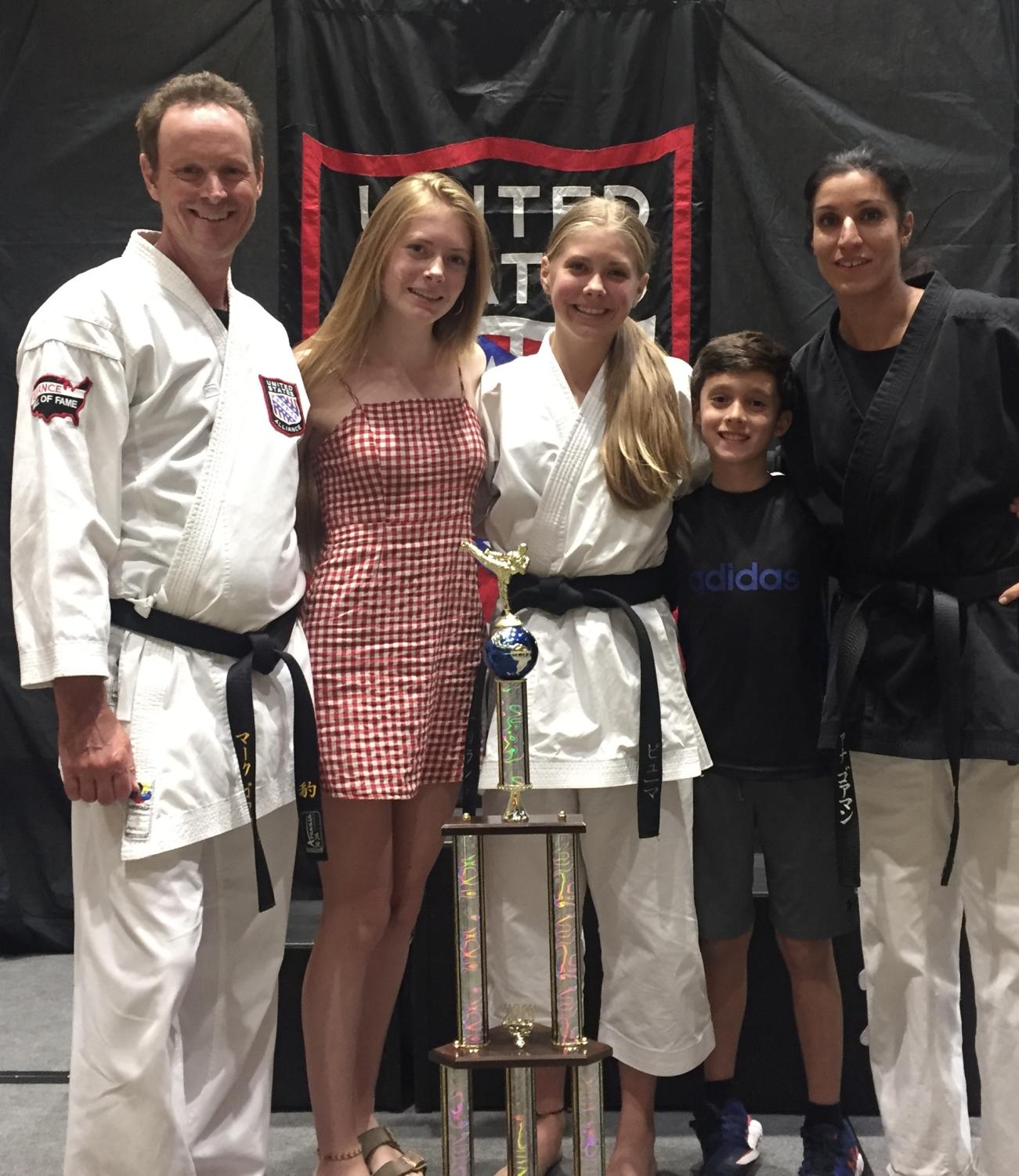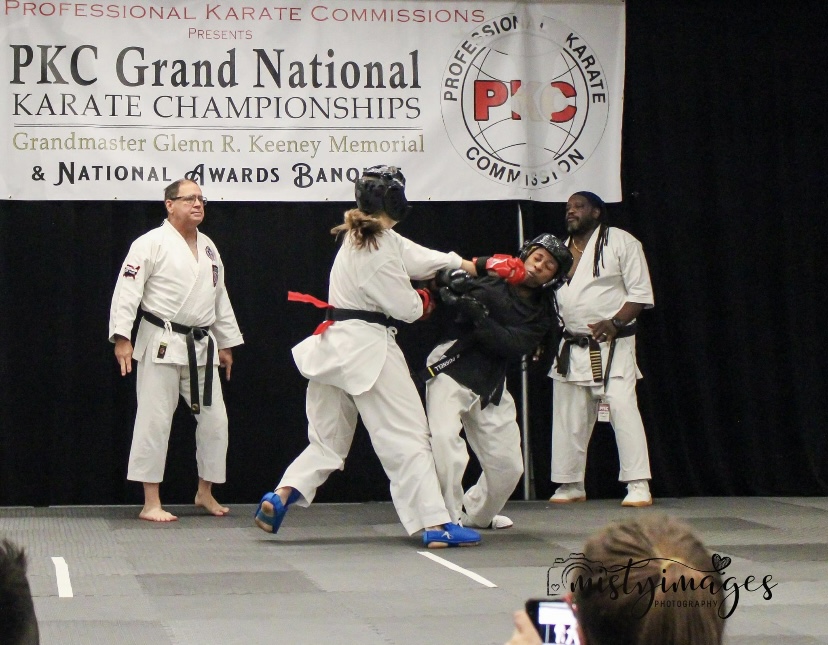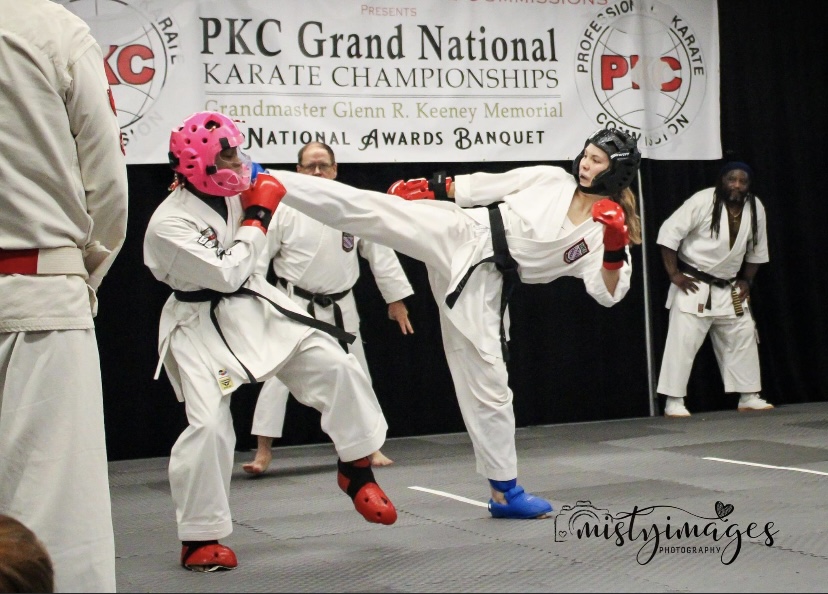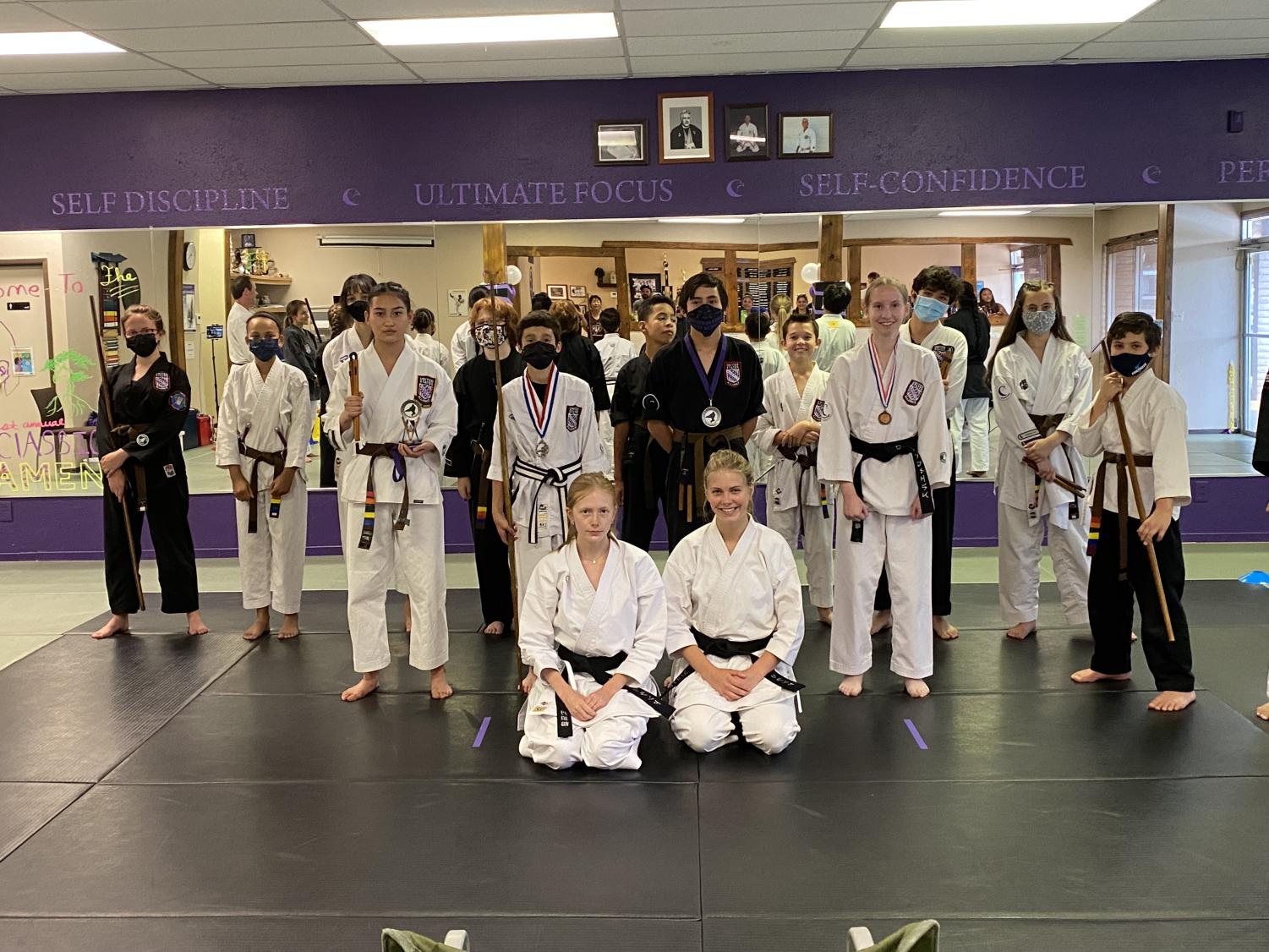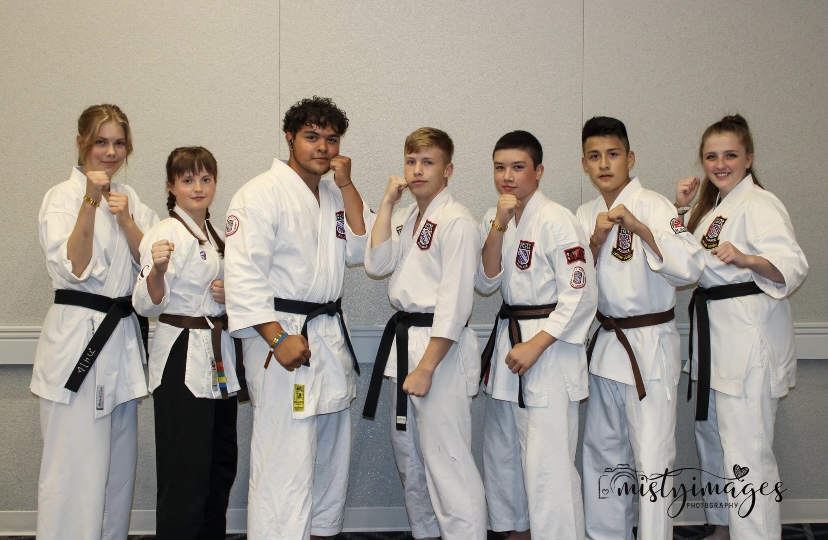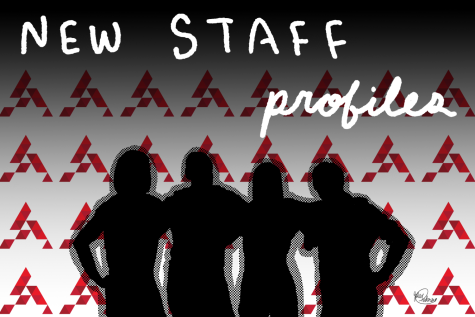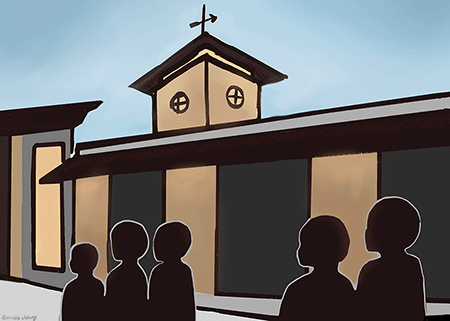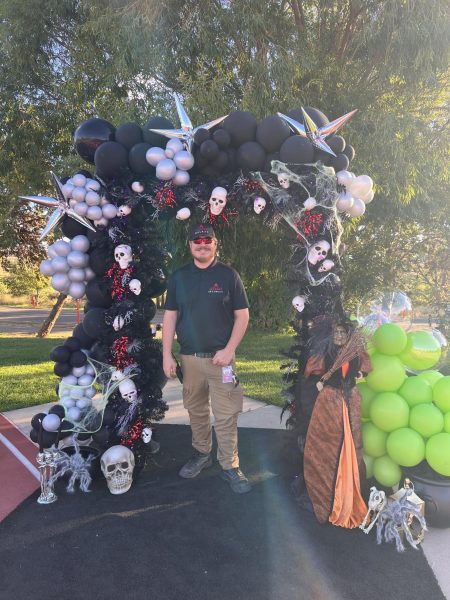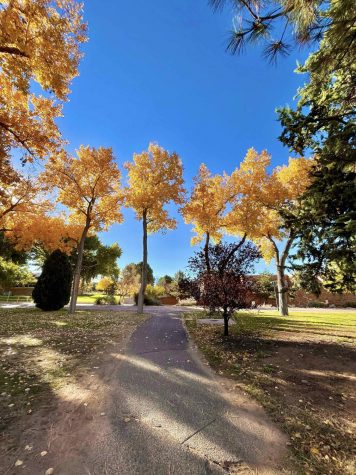Halie Leland: Karate Kid
Halie is simply sensei-tional.
Halie Leland ‘23 is a mystery. Found scribbling poetic musings in her humanities class or ripping it up on the slopes of Taos Ski Valley, she seems to harbor a smile full of secrets. As I took a deep journalistic dive into this enigma, I discovered Halie is the master of the universe. More specifically, she is one of the country’s youngest senseis and a third-degree black belt in karate. I came into this interview expecting a lighthearted feature on a student’s niche hobby; I walked out, after a fruitful discussion on gender, race, and what it means to be an artist, with stars in my eyes and a plan to take some karate lessons.
Comedy is the subversion of expectations, they say. So is karate.
Halie began karate as a young child, enthralled by the sport and the fact that her sister did it. “We sprinted through the ranks as fast as our senseis would let us,” Halie said, smiling. “My sister Lauren’s been a huge part of my training.” For some context, Halie got her first-degree blackbelt at 11, her second-degree black belt (nidan) at 12, and her third-degree black belt (sandan) at just 15. But as she grew, her roles within the sport changed. “I had to transition from a young adult competitor to a young adult teacher,” explained Halie. “I had to learn how to use my voice—karate has taught me everything I know about leadership.” Throughout our conversation, Halie referenced one of her senseis, Anna Gorman, calling herself “wildly lucky to have grown up with an incredible female hall-of-famer and multi-time world champion.” To have a female role model in a male-dominated sport like this one was monumental for Halie. “Girls aren’t allowed to be aggressive or fierce or unapologetic about it,” Halie said. “I never liked listening to that and I try very hard in my role as a teacher now to push the girls I teach, show them that they do have a place in this sport and they are just as tough, athletic, and capable as the boys.” To no one’s surprise, Halie’s mentorship has been widely recognized; she was awarded the Young Patriot Leadership Award by the US Karate Alliance for her teaching at Mountain Eagle Karate Academy— “Being a sensei is my biggest accomplishment—it’s better than any trophy I’ve ever won.”
Halie holds a quiet strength within her, one that I did not know but perhaps recognized. It became apparent as she talked. Green eyes, green belt, black belt, the prodigious child turned thoughtful sensei… but Halie is curiously humble when it comes to her accolades.
Last July she headed into the United States Karate Alliance World Championships in New Orleans, determined to hit the ground running after a competition drought during COVID. “I would be at the dojo for six, seven hours several days a week,” Halie explained, “but that tournament was probably one of the biggest low points in my entire karate career. I lost my championship match pretty badly…” “But you made it to the championships!” I interjected, and she shrugged, smiling sheepishly. I pushed her on this point, asking how she could remain so humble in the midst of such greatness. “There’s always more to learn,” she said. “So if I win a national tournament, great, but somewhere out there is a grandmaster who could take me out in seconds. As soon as it’s over, it’s time to get back in the dojo.”
And get back in the dojo she did. In September of 2022, she traveled to the exotic lands of Columbus, Ohio for the Professional Karate Commission National Championships—where the exigence of her story lies. She arrived at the venue with her parents on the other side of the country and her gear lost on the plane, holding onto nothing but her own strength. Here, for the first time in a long time, Halie explains, “I was able to fight the way I know I can. It reminded me why I compete.” Halie went on to become the PKC National Champion. Of her continual success, Halie emphasized, “I was called talented a lot growing up, but I don’t really believe that talent is a thing. I think it’s a combination of passion and tenacity for something, so when you get the right combination of those two things, that’s what people call talent.” Unfortunately, I have to disagree with this one—Halie’s talented.
Aside from the competition aspect of karate, Halie has found a deep appreciation for the art of the sport. There is beauty in swift, sharp kicks, in the patience of balance. There is even more beauty in the culture and tradition it is rooted in. “Americanized karate is a thing. There’s this capitalistic, white-washed version of martial arts that is what many picture when they think of karate,” observed Halie.
“Especially as a white practitioner, I really do my best to try to understand what I’m practicing, understand the cultures that it comes from, why it exists. And I think you can’t be truly a martial artist without doing that. So we see a lot of Americanized karate that’s fun and flashy, and that can be cool in its own right. We learn jumping spinning kicks, too but with this understanding of where it comes from, and the people that came before you, so it takes a lot of respect, a lot of listening, a lot of being willing to fail and be wrong and push yourself.”
Karate is not what I expected. But all I have to say is that Halie is sensei-tional.


